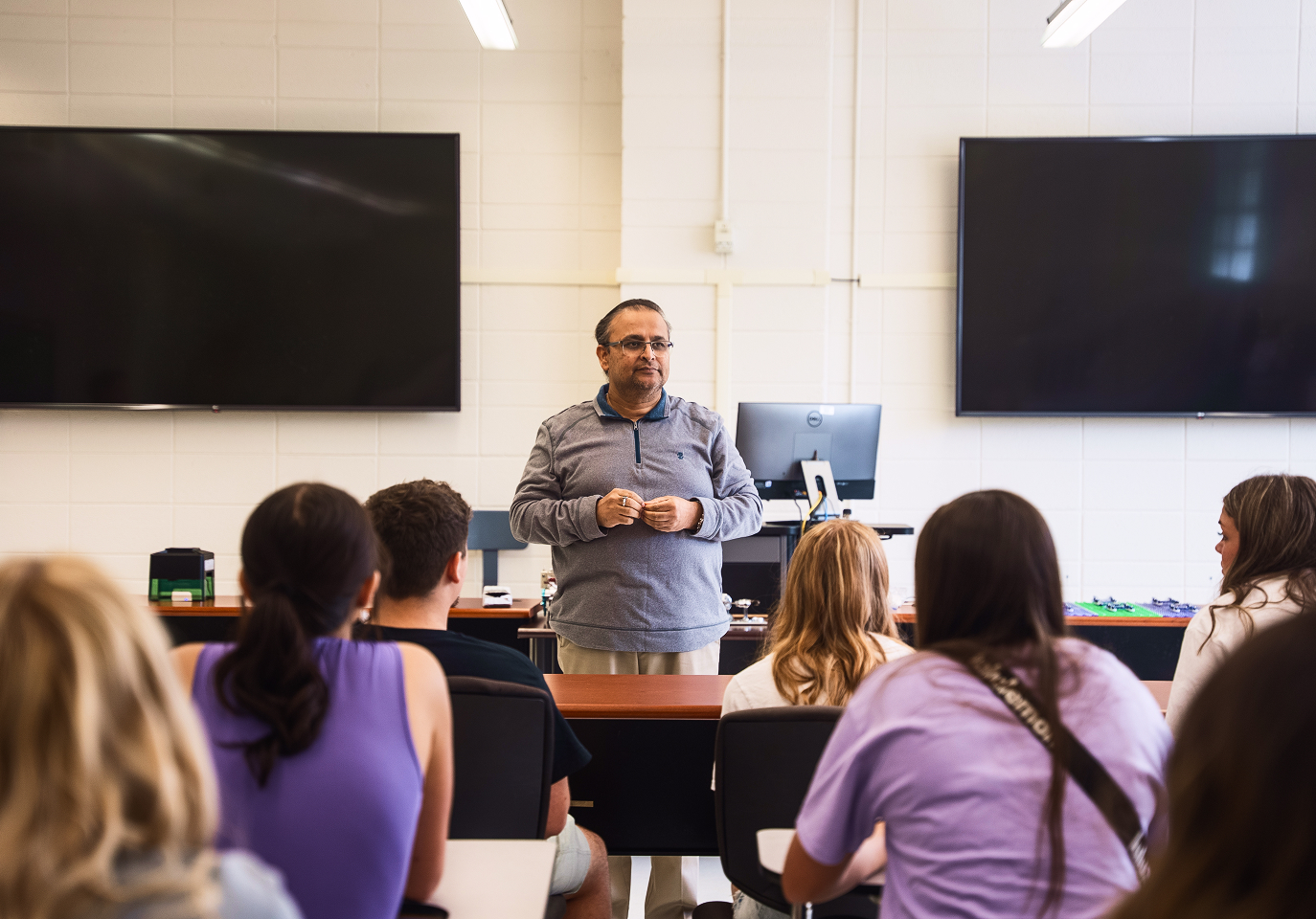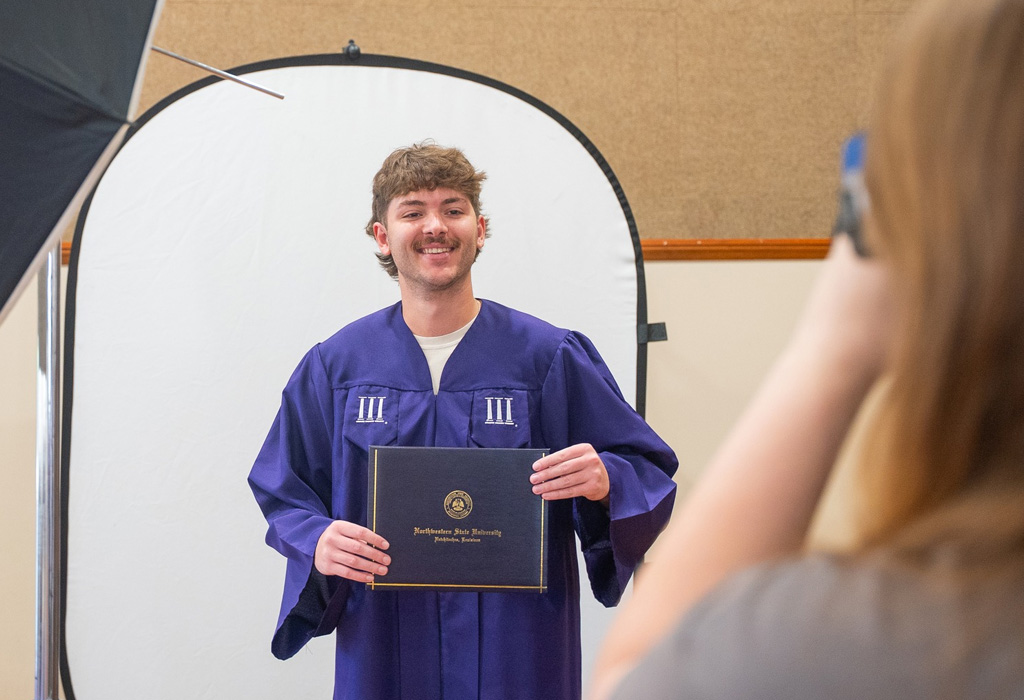The Applied Microbiology curriculum starts with a “microbiology core curriculum” consisting of two general biology survey courses and two general microbiology survey courses with companion laboratories. These survey courses provide students with a broad and basic understanding of the fundamental fields of modern biology and microbiology. Additionally, students complete a series of more directed courses focused on environmental regulations, biochemistry, and microbial genetics and physiology. All students must take a capstone and scientific communication course and three semesters of chemistry (general and organic) with their companion laboratories.
Microbiology majors must choose one of the following two concentrations to allow students with different interests to obtain the proper training necessary to pursue their specific career goals:
Environmental and Applied Microbiology (619C) –For those interested in pursuing employment or graduate degrees in food, industrial, or environmental microbiology or quality assurance technology.
Medical and Health Profession (619B)– For those interested in employment or graduate degrees in medicine, dentistry, allied health sciences, pharmacy, or biomedical/microbiological research.
The Biology curriculum starts with a “core biological sciences curriculum” consisting of two survey courses with companion laboratories and two senior-level courses. The survey courses provide students with a broad and basic understanding of the fundamental fields of modern biology including cell and molecular biology, anatomy and physiology, genetics, microbiology, botany, invertebrate and vertebrate zoology, ecology and evolution. The senior-level courses focus on applying the knowledge that students have gained to develop and complete a senior project and then learning how to communicate findings with other scientists and the general public.
Upon completion of the two survey courses, each biology major must pursue one of the following five concentrations to allow students with different interests to obtain the proper training necessary to attain their specific career goals:
Agribusiness (618U) – For students who seek employment or want to pursue graduate degrees in agricultural business.
Biomedical (618M) – For students interested in pursuing employment or graduate degrees in the medical field (medicine, dentistry, allied health, biomedical research).
Clinical Laboratory Sciences (618T)– For students who are interested in pursuing employment in medical technology.
Forensic Investigation (618Q)– For students who would like to work as an investigator in the office of the coroner, office of the medical examiner or law enforcement agencies.
General Biology (618W) – For students who require the flexibility of an online degree, and wish to pursue employment or graduate degrees in the field of biology.
Wildlife Biology and Conservation (618X)– For students who are interested in pursuing employment or graduate degrees in natural resources, wildlife management, ecology or zoology.
Veterinary Technology (618V) – For students who are interested in pursuing employment or graduate degrees in veterinary medicine.

Use the links below to obtain checkoff sheets for Biology and Applied Microbiology:
There are a variety of scholarships that may be available to incoming students in the Department of Biology and Microbiology. A list of scholarships is posted below, and they have different requirements To apply for these scholarships, please fill out the online scholarship application found at the following link: https://northwesternstatealumni.com/form/.
Dr Jerry Allen Memorial Scholarship
Jack W. Pace Memorial Endowed Scholarship
Harris Family Scholarship
Dr. W. L. Wise Memorial Baptist Church Scholarship
Eleanor M. Worsley, M.D. Scholarship
Bob. W. McLamore Memorial Scholarship
Rene’ Bienvenu Scholarship
SPB Endowed Scholarship
Megan Elizabeth McDaniel STEM Scholarship
Peter H. Breedlove Endowed Scholarship
Leonard F. Endris Scholarship
Microbiology is a diverse discipline and the American Society for Microbiology (ASM) serves as the primary organization that microbiologists join. ASM has several subsections each dedicated to a particular facet of microbiology. You may find out more information about ASM by visiting their website asm.org. The Northwestern State University ASM chapter is an organization for students that have interest in Biology, specifically microbiology. The NSU chapter of ASM is a nationally recognized college chapter. If you are interested in joining the NSU chapter of ASM or would like additional information about our organization, please contact Dr. Christopher Lyles, our faculty sponsor, at (318) 357-6514 or lylesc@nsula.edu.
Beta Beta Beta is a society for students, particularly undergraduates, who are dedicated to improving the understanding and appreciation of biological study and extending the boundaries of human knowledge through scientific research. It was founded in 1922 by Dr. Frank G. Brooks for a group of his students at Oklahoma City University. Since then, there have been more that 430 chapters established around the United States. Northwestern State University’s local chapter, the Delta Theta Chapter, was founded in 1949. If you are interested in joining Beta Beta Beta or if you simply want additional information about our organization, please email us at tribeta@gmail.com or contact Dr. Fran Lemoine, our faculty sponsor, at (318) 357-5805 or lemoinef@nsula.edu.

Requirements to apply:
Meeting the minimum requirements to apply does not guarantee acceptance into the committee. Should you require further information, contact PPSAC@nsula.edu.
Chair of the PPSAC
Dr. Li Ma; email: mal@nsula.edu
